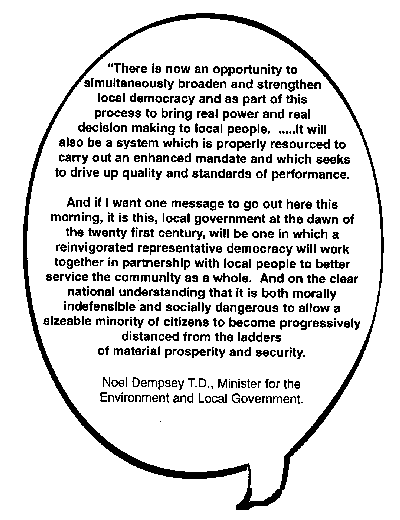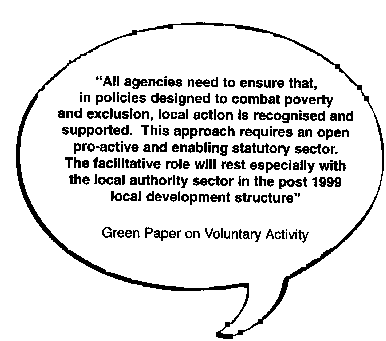Participative Democracy |
|
Participative democracy is concerned with how unequal distribution of power and resources affects peoples daily lives and how they can influence decision making which affects them. Participatory democracy implies that the power to make decisions should not be left to a small number of people, but that power should be more equally shared among all citizens, so that everyone has an opportunity to influence collective affairs. The concern of participatory democrats is to achieve more egalitarian redistribution of power and greater democratisation of the political process at both national and local level. |
 |
| The CWC Conference specifically focused
on the potential for local government reform to
contribute to the development of participatory democracy
at a local level, to include the interests and
participation of those who experience poverty and social
exclusion and, overall, to contribute to a more effective
and egalitarian system of local governance. Local governance in this light is the wider context in which we organise, manage and participate in structures and processes which affect our lives. Local governance can, therefore, encompass systems such as local and regional political decision making fora, local authorities, local development agencies, statutory and semi-state agencies such as those involved in employment, health, education and social welfare, as well as community development organisations, neighbourhood voluntary groups, Traveller organisations and other communities of interest. The conference called for the development of a system of local government which reflects a mix of representative and participative democracy and which promotes a system of local governance in which there are a broad range of decision making arenas. A system in which decisions can be made collectively and on the basis of an agreed agenda. A system which is transparent and accountable to the citizen. The principles involved in participatory democracy are familiar to many involved in community development and include: |
|
|
 |